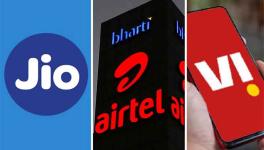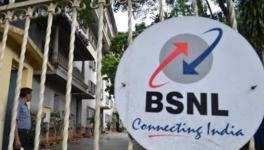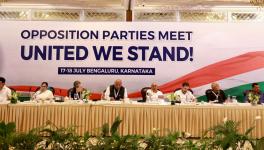Why India Should be Worried About Net Neutrality
Just a few days ago, Airtel announced plans to offer its mobile users free access to certain specific Internet services (such as Facebook, Youtube, Snapdeal, Makemytrip and Twitter) for a limited time followed by special rates to access these specific services.
Such deals are fairly common in the Indian online ecosystem, with both service providers and content providers eager to tap into an ever-increasing market. While appearing attractive to the consumer, such deals are against network neutrality and consequently harm the online economy in the medium and long term. Such practices restrict competition and affect consumer choice by reducing the Internet to just a few specific services of big players such as Google and Facebook.
There is a lot of debate in the US surrounding the issue of network neutrality since a Federal Appeals Court struck down the FCCs “Open Internet Rules” in January this year and the consequent deals struck for instance between Netflix and Comcast. Recently, even President Obama has weighed in with his support for Net Neutrality, though this remains the domain of the Federal Communications Commission (FCC). In India, however there has been very little discussion of the issue despite the numerous egregious violations of the principle.
So what is ‘network neutrality’ and why is this important?

Image Courtesy: pixabay.com
Network neutrality is the principle that ensures competition in the online world. All content on the Internet travels in the form of data packets across the telecommunication networks around the world. Net Neutrality requires that all data travelling over the network be treated equally. Telecom companies, who own the infrastructure through which data packets passes inter alia argue that they should have a right to control this data flow and the “freedom” to charge accordingly (to ensure that certain data gets priority over another or that certain data is not carried at all, etc.). Their argument is that since telecom companies spend large amounts of money building the infrastructure (or the tubes through which data packets pass), they should have a say over what content travels over or through it – and of course make more money from it.
The issue has taken on great importance in the US where at present Internet Service Providers are not regulated as telecommunications companies by the US authorities. The regulatory regime is much more liberal for Information Service providers (which is what the FCC classifies Internet service providers as) as opposed to telecommunication service providers. For instance, the regulatory regime for Information Service providers does not mandate equal and guaranteed access to all and therefore creates the possibility of companies entering into deals that are broadly speaking uncompetitive in nature - for instance deals to create high-speed lanes that ensure certain content is delivered in preference to others.
Put simply, the issue is of whether telecom companies should be regulated, possibly as public utility providers or not.
The Internet economy is highly prone to monopolization due to the nature of the beast – for instance due to the existence of network effects and large economies of scale. The effects of such agreements that violate net neutrality can be disastrous, particularly for small players.
There are numerous examples of violation of this principle in India – which primarily take one of two forms:
(a) Provision of faster speeds for specific services / exemptions from data caps or fair usage policies / throttling of certain services and content:
Numerous service providers, notably Airtel, have instituted Fair Use Policies that throttle Internet speeds (by significant amounts) once a predetermined data cap is reached. This means that once users have downloaded a pre-determined amount of data, the bandwidth available to the user is throttled or reduced. It is argued that by controlling access speeds, they will limit the amount of data that users have access to (and consequently the type of services or websites the users can access). Further, these Fair Usage policies may not apply to specific services or websites – as in the case of Airtel’s Fair Use Policy – that does not apply to BigFlix powered Airtel Movies (where a user will therefore have access to unlimited movies on this one service). Similarly, Vodafone offers a music streaming service that offers unlimited music downloads, once subscribed and it appears MTS India offers a similar package for its movie services. Hathway Cable has started a movie service called Broadband Movies that is exempted from its Fair Usage Policy. Certain ISPs are also reported to have entered agreements to exempt specific Internet TV sites from their Fair Use Policies.
(b) Agreements that allow users access only to specific content: There are numerous instances of service providers providing specific packages that enable access to only limited parts of the Internet – for instance only Facebook or Youtube or that enable cheaper access to specific content. For instance, Tata Docomo has put in place pay per site plans that charge customers depending on which websites they visit; MTS has reportedly offered packages where its customers can browse certain selected websites for free (such as Yahoo India, Yahoo Mail, Wikipedia, Makemytrip, shopping.indiatimes.com and Cricinfo.com.). Google has reportedly entered into a deal with Airtel wherein all Google services were available for free to Airtel’s Internet subscribers. Facebook has a similar deal with Reliance Comunications, as does WhatsApp. Tata Docomo has reportedly entered into agreements to have special Youtube, Apalya Mobile TV (live TV streaming services) and Saavn (an online music streaming service) plans and similarly Times Internet’s video on demand service BoxTV has tied up with Spectranet Broadband to offer free subscriptions, operator billing and improved data limits for Spectranet’s fibre customers.
What is the implication of such violations of net neutrality? Quite simply, it prevents smaller companies from entering the market. For instance, are you likely to use any alternate video streaming service if you have no data caps on Youtube (pursuant to a deal between Google and your ISP) or enjoy substantially higher bandwidth speeds when accessing their services.
Despite these and numerous other violations of the principle, we have no regulatory regime in India requiring the maintenance of a level playing field in the online space. The Telecom Regulatory Authority (TRAI) has mentioned the issue a couple of times in its consultations/recommendations released in 2006 and 2012, but has so far failed to put in place any regulations on the issue.
Over the last few months, there has been considerable pressure put by various telcos on the Telecom Regulatory Authority, who want the regulatory authority to ensure that service providers such as Skype, WhatsApp and Viber – who provide free SMS or VoIP services (generically known as Over the Top Players or OTTPs) share part of their revenue with the telcos.
Telcos point to the fact that they purchase spectrum, over which these OTTPs provide ‘free’ services to the public, thereby cutting into their earnings. The telco industry estimates that it has lost close to 42% of SMS revenue and 19% of voice revenue to OTTPs over the last four quarters (industry estimates claim a loss of about 5000 Crores annually, due to rise to about 16,000 crores in the next two years).
TRAI has so far rejected calls to either regulate these OTTPs or carry out consultations on the issue inter alia stating that the rise in data charges and fees on this account is sufficient to offset the losses faced due to dropping numbers of SMS’s and voice calls. (To be noted that OTTPs have also argued that any proposed plan to share revenues would increase costs to the consumer).
While commending this stance taken by TRAI, it is indeed curious that TRAI has avoided broaching the issue of net neutrality – which is principle that TRAI should apply to the matter at hand (rather than seeing things only from the perspective of protecting the revenues of the telcos which in any event will not really suffer that much, as they will continue to charge for data services, the coverage of which will only increase).
Any proposal to ensure content or service providers must pay telcos for users to access their services / content would ensure that only big players could continue in the market. Any such fee would cripple start-ups and other smaller businesses in the VoIP or web messenger market.
Further, charging for OTTP services is just a step away from differential charging for a variety of other services – thereby ensuring that the telcos can determine where to drive users. The Internet will no longer be the relatively free space it now is and such steps would also drive down innovation.
TRAI must be commended on the stand it has taken to date. However there are plenty of battles ahead. It is clear that in the not too distant future, telcos will also attempt to charge extra (either from the service provider or the user) for access to heavy bandwidth applications and services such as video streaming websites.
What chance is there for an Indian to come up with the next Facebook if Facebook can just pay Indian telcos to ensure that its services are so much cheaper that it makes absolutely no sense for consumers to use any other service? Similarly, we may have many new users of the Internet who’s experience of the Internet would be solely restricted to a few specific types of content – thereby killing the democratizing potential of the Internet.
India must take a leaf out of the book of countries such as Chile, Brazil and the Netherlands who have all implemented legislation in this respect. Ensuring a level playing field in the online market is essential if we are to fully reap the benefits of digitizing our economies.
Sources:
https://gigaom.com/2010/03/25/youtube-caught-in-net-neutrality-flap-in-india/
http://www.thehindu.com/todays-paper/tp-national/tp-tamilnadu/article743519.ece
http://www.medianama.com/2014/06/223-india-net-neutrality/
http://www.medianama.com/2014/08/223-mts-movies/
http://www.medianama.com/2014/07/223-hathaway-eros-now/
https://broadbandforum.co/threads/airtel-violates-net-neutrality-again-with-its-broadband-tv.48700/
http://www.medianama.com/2010/04/223-mts-mblaze-net-neutrality-mobile-internet/
http://www.medianama.com/2014/01/223-airtel-facebook-free-hindi/
http://www.medianama.com/2013/12/223-tata-docomo-whatsapp/
Disclaimer: The views expressed here are the author's personal views, and do not necessarily represent the views of Newsclick
Get the latest reports & analysis with people's perspective on Protests, movements & deep analytical videos, discussions of the current affairs in your Telegram app. Subscribe to NewsClick's Telegram channel & get Real-Time updates on stories, as they get published on our website.
























